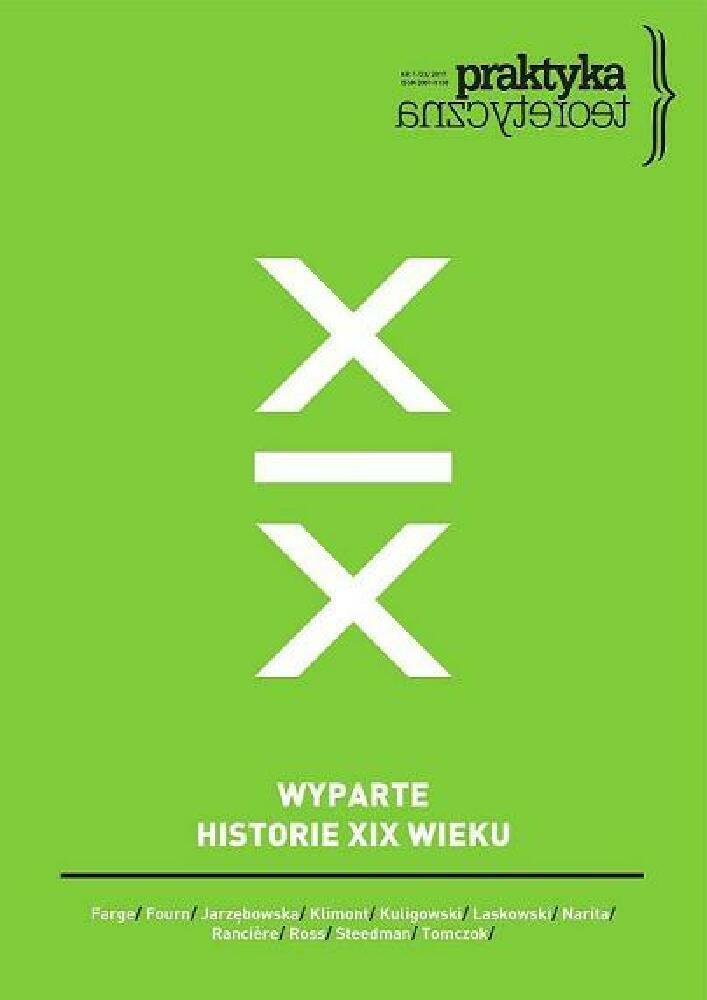Abstract
This essay attempts to outline a historical method developed from the late writings of Walter Benjamin. Arlette Farge argues that in Passagenwerk, the work about Leskov and in On the Concept of History, the German philosopher succeeded in portraying a new way of thinking about history. This was an approach that offered the historian access not only to facts but also to particular experiences, felt emotions, desires or dreams. As Farge posits, Michel Foucault and Michel de Certeau, among others, conducted their studies using a similar method.References
Baudelaire, Charles. 1990. „Zorza poranna”. Tłum. Adam Ważyk. W Charles Baudelaire. Kwiaty zła. Kraków: Wydawnictwo Literackie.
Benjamin, Walter. 1996. „Narrator. Rozważania o twórczości Mikołaja Leskowa”. Tłum. Krystyna Krzemieniowa. W Walter Benjamin. Anioł historii. Eseje, szkice, fragmenty. Poznań: Wydawnictwo Poznańskie.
Benjamin, Walter. 2006. Écrits français. Paris: Gallimard.
Benjamin, Walter. 2011. „Berlińskie dzieciństwo około roku dziewięćsetnego”. Tłum. Andrzej Kopacki. Literatura na Świecie 8–9.
Benjamin, Walter. 2012. „O pojęciu historii”. Tłum. Adam Lipszyc. W Walter Benjamin. Konstelacje. Wybór tekstów. Kraków: Wydawnictwo Uniwersytetu Jagiellońskiego.
de Certeau, Michel. 1975. LʼÉcriture de lʼhistoire. Paris: Gallimard.
de Certeau, Michel. 1982. La Fable mystique: XVIe et XVIIe. Paris: Gallimard.
Farge, Arlette i Michel Foucault. 1982. Le Désordre des familles, lettres de cachet des Archives de la Bastille. Paris: Gallimard Julliard.
License
“Theoretical Practice” seeks to put into practice the idea of open access to knowledge and broadening the domain of the commons. It serves the development of science, thinking and critical reflection. The journal is published in open-access mode under the CC-BY-NC-SA 4.0 license (detail available here: http://creativecommons.org/licenses/by-nc-sa/4.0/). Articles published in the journal may be freely distributed, stored, printed and utilized for academic and teaching purposes without restrictions.
They should not be, however, used for any commercial purposes or be reconstructed into derivative creations. Access to the journal may not be limited or offered for a fee by any third party.
Prospective authors are obliged to fill in, sign and send back the publishing contract compliant with the CC licencing. [PL.pdf, PL.doc, EN.pdf,EN.doc].
According to this contract, authors grant the journal a non-exclusive right to publish their work under the creative commons license (CC-BY-NC-SA 4.0) without any financial obligation on both sides of the contract.
Before submission authors should make sure that derivative materials they use are not protected by copyright preventing their non-commercial publication. Authors are responsible for any respective copyright violations.
